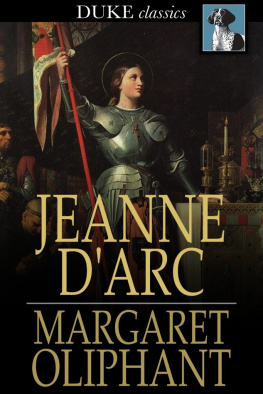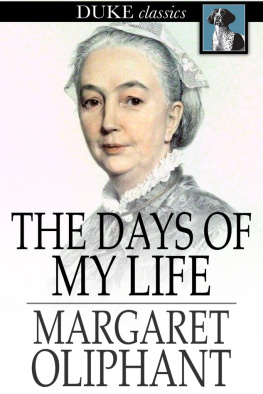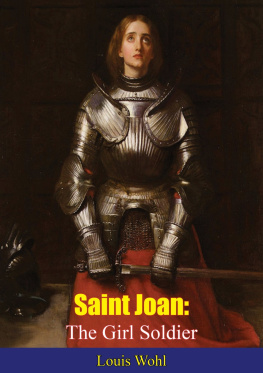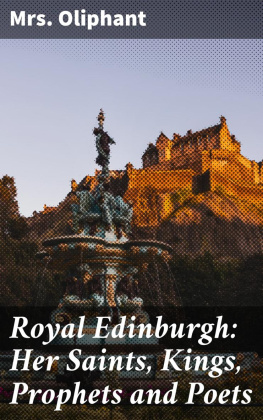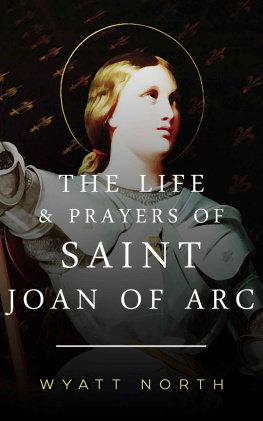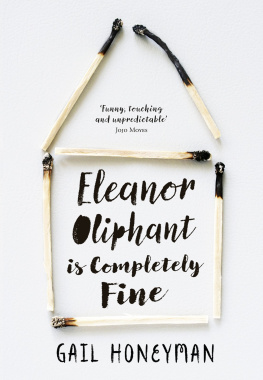JEANNE D'ARC
HER LIFE AND DEATH
* * *
MARGARET OLIPHANT
*
Jeanne d'Arc
Her Life And Death
First published in 1896
ISBN 978-1-62013-540-2
Duke Classics
2014 Duke Classics and its licensors. All rights reserved.
While every effort has been used to ensure the accuracy and reliability of the information contained in this edition, Duke Classics does not assume liability or responsibility for any errors or omissions in this book. Duke Classics does not accept responsibility for loss suffered as a result of reliance upon the accuracy or currency of information contained in this book.
Contents
*
*
To
COUSIN ANNIE (MRS. HARRY COGHILL)
THIS BOOK IS INSCRIBED IN LOVE OF OUR COMMON HEROINE AND IN REMEMBRANCEOF LONG AND FAITHFUL AFFECTION AND FRIENDSHIP
FACTA DUCIS VIVENT, OPEROSAQUE
GLORIA RERUMOVID, IN LIVIAM, 265.
THE HERO'S DEEDS AND HARD-WON
FAME SHALL LIVE.
Chapter I - France in the Fifteenth Century 1412-1423
*
It is no small effort for the mind, even of the most well-informed, howmuch more of those whose exact knowledge is not great (which is thecase with most readers, and alas! with most writers also), to transportitself out of this nineteenth century which we know so thoroughly, andwhich has trained us in all our present habits and modes of thought,into the fifteenth, four hundred years back in time, and worlds apartin every custom and action of life. What is there indeed the same inthe two ages? Nothing but the man and the woman, the living agents inspheres so different; nothing but love and grief, the affections andthe sufferings by which humanity is ruled and of which it is capable.Everything else is changed: the customs of life, and its methods, andeven its motives, the ruling principles of its continuance. Peace andmutual consideration, the policy which even in its selfish developmentsis so far good that it enables men to live together, making existencepossible,scarcely existed in those days. The highest ideal was that ofwar, war no doubt sometimes for good ends, to redress wrongs, to avengeinjuries, to make crooked things straightbut yet always war, implyinga state of affairs in which the last thing that men thought of wasthe golden rule, and the highest attainment to be looked for was theposition of a protector, doer of justice, deliverer of the oppressed.Our aim now that no one should be oppressed, that every man shouldhave justice as by the order of nature, was a thing unthought of. Whatindividual help did feebly for the sufferer then, the laws do for usnow, without fear or favour: which is a much greater thing to saythan that the organisation of modern life, the mechanical helps, thecomforts, the easements of the modern world, had no existence in thosedays. We are often told that the poorest peasant in our own time hasaids to existence that had not been dreamt of for princes in the MiddleAges. Thirty years ago the world was mostly of opinion that the balancewas entirely on our side, and that in everything we were so much betteroff than our fathers, that comparison was impossible. Since then therehave been many revolutions of opinion, and we think it is now thegeneral conclusion of wise men, that one period has little to boastitself of against another, that one form of civilisation replacesanother without improving upon it, at least to the extent which appearson the surface. But yet the general prevalence of peace, interruptedonly by occasional wars, even when we recognise a certain largeand terrible utility in war itself, must always make a differenceincalculable between the condition of the nations now, and then.
It is difficult, indeed, to imagine any concatenation of affairs whichcould reduce a country now to the condition in which France was in thebeginning of the fifteenth century. A strong and splendid kingdom, towhich in early ages one great man had given the force and supremacy ofa united nation, had fallen into a disintegration which seems almostincredible when regarded in the light of that warm flame of nationalitywhich now illumines, almost above all others, the French nation. ButFrenchmen were not Frenchmen, they were Burgundians, Armagnacs, Bretons,Provenaux five hundred years ago. The interests of one part of thekingdom were not those of the other. Unity had no existence. Princes ofthe same family were more furious enemies to each other, at the head oftheir respective fiefs and provinces, than the traditional foes of theirrace; and instead of meeting an invader with a united force of patrioticresistance, one or more of these subordinate rulers was sure to sidewith the invader and to execute greater atrocities against his own fleshand blood than anything the alien could do.
When Charles VII. of France began, nominally, his reign, his uncles andcousins, his nearest kinsmen, were as determinedly his opponents, as wasHenry V. of England, whose frank object was to take the crown from hishead. The country was torn in pieces with different causes and cries.The English were but little farther off from the Parisian than was theBurgundian, and the English king was only a trifle less French thanwere the members of the royal family of France. These circumstances arelittle taken into consideration in face of the general history, in whicha careless reader sees nothing but the two nations pitted against eachother as they might be now, the French united in one strong and distinctnationality, the three kingdoms of Great Britain all welded into one.In the beginning of the fifteenth century the Scots fought on the Frenchside, against their intimate enemy of England, and if there had been anyunity in Ireland, the Irish would have done the same. The advantagesand disadvantages of subdivision were in full play. The Scots foughtfuriously against the Englishand when the latter won, as was usuallythe case, the Scots contingent, whatever bounty might be shown to theFrench, was always exterminated. On the other side the Burgundians, theArmagnacs, and Royalists met each other almost more fiercely than thelatter encountered the English. Each country was convulsed by strugglesof its own, and fiercely sought its kindred foes in the ranks of itsmore honest and natural enemy.
When we add to these strange circumstances the facts that the FrenchKing, Charles VI., was mad, and incapable of any real share either inthe internal government of his country or in resistance to its invader:that his only son, the Dauphin, was no more than a foolish boy, led byincompetent councillors, and even of doubtful legitimacy, regarded withhesitation and uncertainty by many, everybody being willing to believethe worst of his mother, especially after the treaty of Troyes in whichshe virtually gave him up: that the King's brothers or cousins at thehead of their respective fiefs were all seeking their own advantage, andthat some of them, especially the Duke of Burgundy, had cruel wrongsto avenge: it will be more easily understood that France had reached aperiod of depression and apparent despair which no principle of nationalelasticity or new spring of national impulse was present to amend. Theextraordinary aspect of whole districts in so strong and populous acountry, which disowned the native monarch, and of towns and castlesinnumerable which were held by the native nobility in the name ofa foreign king, could scarcely have been possible under othercircumstances. Everything was out of joint. It is said to becharacteristic of the nation that it is unable to play publicly (aswe say) a losing game; but it is equally characteristic of the raceto forget its humiliations as if they had never been, and to come outintact when the fortune of war changes, more French than ever, almostunabashed and wholly uninjured, by the catastrophe which had seemedfatal.

